5. Fahrenheit 451 (1966)
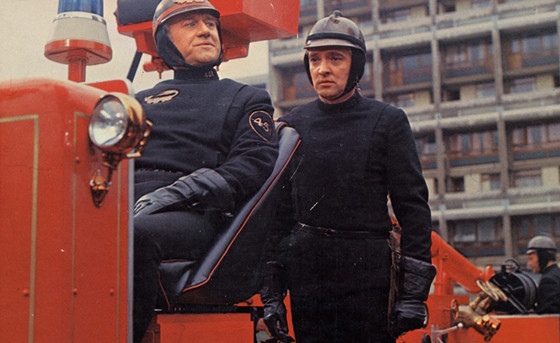
Based on the visionary novel by Ray Bradbury, Fahrenheit 451 is another of the dystopian movies on this list. The well-known story follows fireman Guy Montag who lives in an unspecified future in which firemen don’t put out fires, but instead are in charge of burning books.
The possession of books has been outlawed. People live in an apparently harmonious society where they keep each other in check, live very superficial lives and are constantly surrounded by screens on which ‘the family’ educates them on how to behave.
The problems that arise from this kind of life are manifested in Montag’s unhappy relationship with his wife Linda and his awakened longing for human connection when he meets Clarisse who lives with her uncle in a house full of forbidden books.
Linda and Clarisse are both played by the same actress (Julie Christie) which gives an additional edge to both characters, each seemingly showing what the other might have been in different circumstances.
It is not easy to imagine any remake topping the stylistic endeavour of an obviously Hitchcock-influenced Francois Truffaut who managed to combine philosophy, style and emotion and created a masterpiece. The iconic ending alone – which shows people wandering through a snowy forest, reciting the novels they learned by heart – is a hard act to follow.
Thankfully, a remake of the movie would rather be a new adaptation of Bradbury’s novel and therefore able to free itself from the visual feast of its predecessor (Truffaut’s version actually deviated a lot from the novel). At least that’s the hope for the upcoming HBO adaptation, scheduled for later this year and starring Michael B. Jordan and Michael Shannon.
4. Star Trek (1966 – )
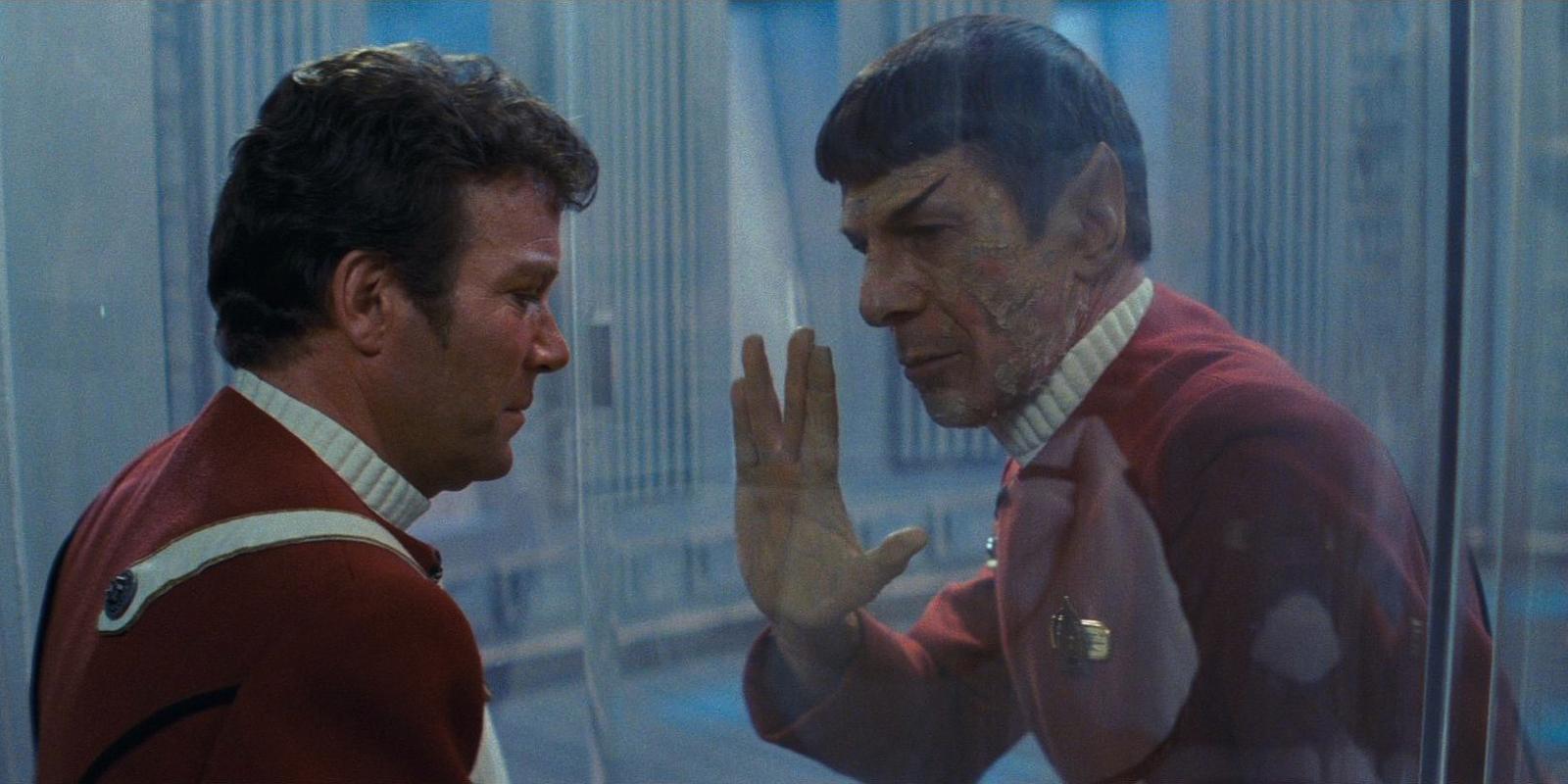
Where even to begin… Star Trek is more than a TV series, more than a range of movies, more than a few characters flying around on a spaceship. It is a dedicated universe with a sprawling cast, a multitude of stories and millions of fans all over the world.
This means that every new addition, every remake, every spin-off comes under extreme scrutiny. But it also means that new movies are not just re-hashing the old ones, but rather expanding the Star Trek universe. If they are well done, they are usually welcomed with open arms by the Trekkies, who are happy that their favourite world(s) is here to stay.
Star Trek is therefore a prime example of how a franchise can keep something alive and allow it to grow, while also being a reflection of their time. Starting in 1966, Star Trek so far counts 13 films and 741 TV-episodes, and there is no end in sight.
The next addition will be a new movie under the helm of J.J. Abrams and Quentin Tarantino, with the latter set on directing. There is no release date yet, but every move is already being scrutinized. Stay tuned…
3. Barbarella (1968)
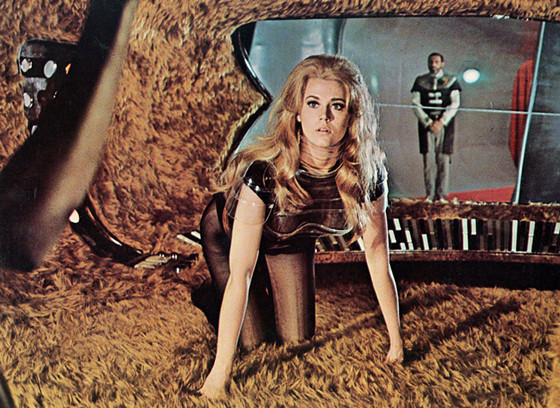
Jane Fonda as a foxy Space-Barbie-Female-James-Bond kind of heroine, traipsing around space, having casual sexual encounters, saving – what exactly? – the world, probably.
What more could we ask for?
Maybe a story that makes sense, although there is a crazy, kidnapped scientist somewhere in the mix, and something about the world maybe being destroyed. But one forgets the original premise as quickly as the title character manages to lose her clothes.
It would be interesting to see how this senseless, sexy fun would be reinterpreted during today’s heated gender debate. Is Barbarella the mistress of her own body and sexuality, allowed to have fun on her own terms, or is she nothing but the empty projection of male desires?
In 1968, when the movie (based on an adult comic strip) was first realized, these questions were not exactly the height of chic. Sexual liberation was celebrated and nobody (least of all French directors like Roger Vadim, him of ‘And God Created Woman’) was in the mood to question this. ‘Barbarella’ was a symptome of its time. Feminism meant to show off your sexuality and deploy it as a powerful weapon in the female arsenal.
For better or for worse, a remake would have to address the issues of today and be a reflection of our time, just as the 1968 version was then. And, amongst others, it would need to answer these questions: Is there still a torture-pleasure machine that Barbarella’s insatiable sexual desire breaks? Is there still a character named ‘Dildano’?
2. Nineteen Eighty-Four (1984)
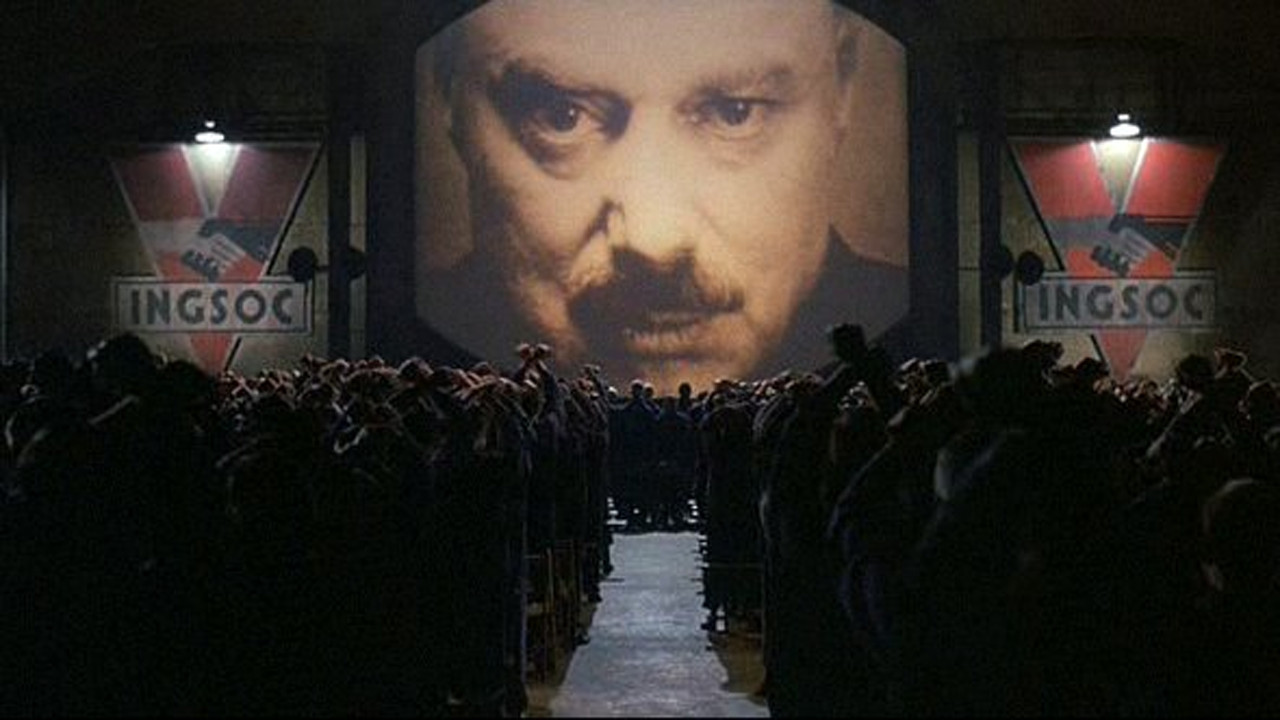
Since its publication in 1949, George Orwell’s novel ‘1984’ has been considered as a milestone in both literature and political philosophy and is a fixture on every reading list. Adaptations and references are myriad.
Despite its success and prominence, 2017 proved to be a special year in the novel’s long history. Even though there was no new movie or TV adaptation, the novel experienced a huge spike in the bestseller lists and has been a renewed topic of conversation in the current discussion about Fake News. In ‘1984’, history is rewritten in the Ministry of Truth, and people are monitored and persecuted for “thoughtcrimes”.
This renewed interest makes the movie/novel a prime candidate for a remake. Although the movie from 1984 (sic) is highly-acclaimed and worth to be watched and re-watched, its Soviet style and bleak coloring makes it rather seem dated, like it has become part of history itself. The timeless subject of the surveillance state and the negation of individual freedoms would do well to be remade in a more modern way.
1. Dune (1984)
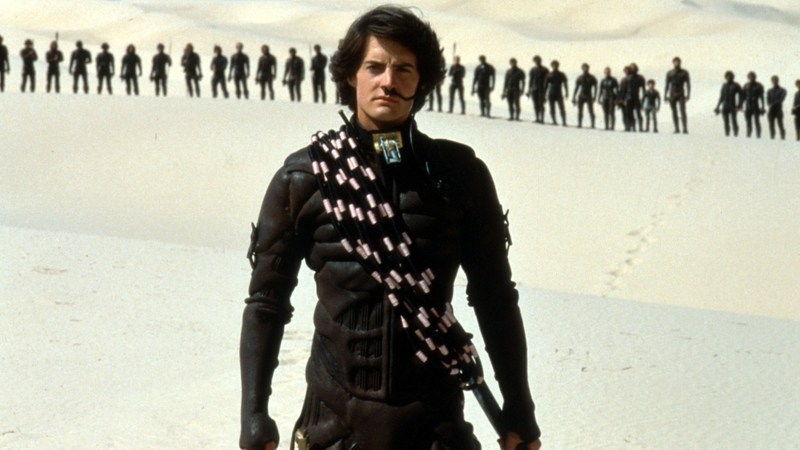
After proving himself worthy of the genre with Arrival (2016) and Blade Runner 2049 (2017), acclaimed director Denis Villeneuve will now take on the monumental task of filming one of the most famous science fiction novels of all time, ‘Dune’ by Frank Herbert. An endeavour for which he even foregoes directing the new Bond movie.
The novel has long been deemed unfilmable, even after David Lynch made his movie version in 1984. The movie is mainly famous for its confusing storytelling, Toto soundtrack and a disturbing and controversial depiction of sexual assault.
Despite its flaws, it has attained something of a cult status, and not just because anything attributed with David Lynch is fethishized, if it deserves it or not. The surreal visual style and baroque opulence procures the viewer with a feast for the eyes, even if there is some confusion about what is actually going on and why.
For what it’s worth, Villeneuve has already stated that he does not plan to remake Lynch’s movie, but will instead attempt to get a fresh take on the novel.